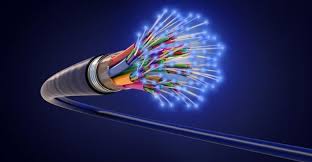Facebook’s parent company, Meta, has entered into a partnership with Safaricom, Kenya’s largest telecom operator, to invest in a new subsea fibre-optic cable project that will connect East Africa to the Middle East and improve internet capacity in the region. The move is seen as part of efforts to expand digital infrastructure across Africa and provide faster, more reliable internet to millions of users.
The project, known as the Daraja Project, involves laying a high-capacity undersea internet cable between the coastal city of Mombasa in Kenya and Oman in the Middle East. According to filings, the initiative has already received environmental approval from the National Environmental Management Authority (NEMA) of Kenya. Construction is expected to begin soon, with the cable scheduled to go live by 2026.
The investment is valued at about $23 million, which is estimated at KSh 2.97 billion. Meta is participating in the project through its Irish subsidiary, Edge Network Services Ltd., which has become a co-investor alongside Safaricom. The cable is expected to increase internet speeds, improve bandwidth capacity, and lower the cost of connectivity for consumers and businesses across Kenya and neighbouring countries.
Safaricom, which is majority owned by South Africa’s Vodacom Group and the Government of Kenya, has continued to strengthen its position as a key player in East Africa’s telecom and digital markets. The company already runs extensive fibre networks and is well known for its mobile money service, M-Pesa, which is widely used across the region. By partnering with Meta, Safaricom is expanding into infrastructure that supports broader internet access and data services.
Meta has been investing heavily in Africa’s internet infrastructure. The company is one of the main backers of the 2Africa subsea cable project, which is expected to become the largest undersea internet cable in the world, circling the continent and connecting it to Europe, the Middle East, and Asia. The partnership with Safaricom shows Meta’s growing interest in East Africa’s fast-growing digital economy, where millions of young people are coming online for the first time.
Kenya, with its reputation as a hub for mobile money and technology innovation, stands to benefit significantly from the Daraja Project. Improved connectivity is expected to support businesses that rely on cloud services, online platforms, and e-commerce. It will also improve services in education, healthcare, and government by enabling faster digital communication.
The National Environmental Management Authority (NEMA) confirmed that the project has been cleared after reviewing its environmental and social impact assessments. The approval ensures that the cable-laying process will follow international standards and that the ecological impact along Kenya’s coastline will be properly managed.
Industry experts say the investment highlights the importance of submarine cables in driving Africa’s digital future. According to reports, more than 95 percent of international internet traffic is carried by subsea cables, making them a vital part of global communication. For East Africa, which still faces challenges of high internet costs and uneven coverage, the Daraja Project is expected to improve access and encourage digital inclusion.
Safaricom’s Chief Executive Officer, Peter Ndegwa, has in the past stressed the importance of partnerships in expanding the company’s services and building long-term infrastructure. While he has not released a detailed statement on this particular investment, observers believe the collaboration with Meta could also open the door to more joint projects in digital services, cloud infrastructure, and fintech solutions.
For Meta, which owns global platforms such as Facebook, Instagram, and WhatsApp, improving internet access in Africa is also a way to increase usage of its products. By making connectivity faster and cheaper, the company expects to bring more people online, strengthen its advertising business, and support new applications in e-commerce and digital payments.
The Daraja Project will not only serve Kenya but also neighbouring countries that connect through Mombasa, which is already a key landing point for several international fibre cables. Countries such as Uganda, Rwanda, Tanzania, and Ethiopia could indirectly benefit from the improved international bandwidth once the system goes live.
With an estimated completion date of 2026, the partnership between Meta and Safaricom marks another major milestone in Africa’s digital transformation journey. By combining the resources of a global technology company and a regional telecom leader, the project could help close the connectivity gap and create new opportunities for economic growth in East Africa.
